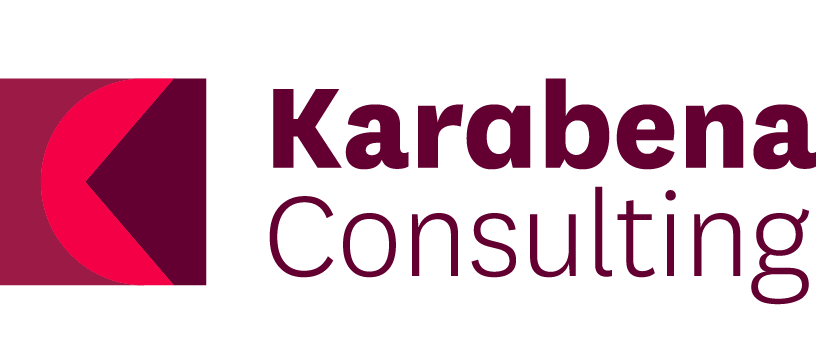Eastern Health Executive and Board Cultural Awareness Training
Eastern Health
Who funded the project
Karabena Consulting was engaged by Eastern Health to create a holistic cultural awareness and comprehension program. This program aims to embed people’s experiences of reconciliation to further strengthen Eastern Health’s capacity to develop and deliver culturally sensitive services. Two half-day sessions were delivered at Eastern Health offices, incorporating Indigenous methodologies and practices to be applied in their management styles and decision-making strategies.
Facilitated in partnership with Karen Milward Consulting Services, we explored many of the contemporary issues impacting Aboriginal and Torres Strait Islander people’s health and wellbeing in the region, highlighting the importance of fostering a respectful and empathetic approach towards addressing challenges affecting members of the community.
Key areas of focus included understanding the political dynamics affecting First Peoples, acknowledging their lived experiences and historical marginalisation, and recognising their aspirations and the impact of socio-economic factors on their health and wellbeing. Additionally, the discussions highlighted the importance of housing, wealth disparity, cultural safety, and the role of Traditional Owners as crucial factors influencing health outcomes.
The training highlighted the need for ongoing engagement with Aboriginal and Torres Strait Islander communities, incorporating their knowledge and leadership in health planning, and ensuring that health care services are culturally appropriate and responsive.
Summary
The primary purpose of this project was to:
Learn and Connect: Understand key concepts underpinning the current policy context in Victoria and the emerging direction of the relationship between First Peoples and the State.
Identify Eastern Health’s capacity for partnerships: Explore what it means for Eastern Health to develop partnerships underpinned by just and respectful engagement with self-determining First Peoples.
Culturally Confident Integration: Facilitate increased cultural confidence and competence, and integrate reconciliation and care for Country through executive work, decision-making processes, and customer commitments.
Project Aims
Knowing, Being and Doing
Introducing the elements of knowing, being and doing as focal points for shifting towards a more Indigenous approach to problem-solving and learning is crucial for several reasons. These elements collectively enable a holistic learning experience that aligns with Indigenous ways of understanding and interacting with the world, emphasising the integration of knowledge, experience and action.
Knowing
The ‘knowing’ aspect of the program involves providing core information prior to the day-long workshop. This preparatory phase is designed to equip participants with the essential background knowledge needed to engage productively in the workshop. By ensuring that participants have a shared foundational understanding, the ‘knowing’ element facilitates deeper and more meaningful discussions during the workshop. It aligns with traditional learning processes where knowledge is respected and valued as the basis for informed decision making and thoughtful engagement.
Being
The ‘being’ component focuses on creating an immersive experience during the workshop itself. This involves facilitating safe discussions and creating an environment where participants can be present in both mind and spirit. It is about cultivating a space where individuals can authentically engage with each other and the material, reflecting the Indigenous emphasis on relationality and connection. By focusing on ‘being’, the program encourages participants to internalise and embody the knowledge shared, fostering a deeper personal connection to the learning and to each other, which is essential for transformative experiences.
Doing
Finally, the ‘doing’ elements of the program are concerned with the application of learned concepts in practical settings. This post-workshop component is crucial as it enables participants to translate the insights gained during the workshop into actionable steps that support the Board and Executive in evolving their Cultural Plan and reconciliation commitments. This phase underscores the importance of integrating new understandings into everyday practices, a fundamental aspect of Indigenous methodologies, which often stress the inseparability of knowledge and action.
The inclusion of knowing, being and doing in the program structure reflects an Indigenous approach that is not linear but cyclical and continuous. It recognises that real understanding comes from an iterative process of learning, experiencing and doing. This approach ensures that the patterns of arriving at answers are not just theoretical but are lived and enacted, leading to more sustainable and profound impacts on organisational culture and practices. This method is especially pertinent in contexts such as cultural planning and reconciliation, where deep, systemic change is sought.
Methodologies
The key outputs for this project were:
a two day program of activities with high relevance for hospital staff, Executive and the Board
Cultural Immersion Experiences
A report highlighting some of the recommendations that came from the participants.
Outputs
This comprehensive program was designed to enhance cultural safety. Eastern Health could implement several strategies including the creation of continuous and culturally sensitive feedback mechanisms like community forums, surveys and focus groups, ensuring all community members can participate.
Comprehensive cultural competence training for all staff, focusing on Aboriginal and Torres Strait Islander contexts, is essential.
Employing local Aboriginal community members can enhance cultural authenticity. Eastern Health could influence policy at governmental levels to address broader systemic issues, advocate for community involvement, and establish a process for acknowledging and rectifying mistakes to maintain trust.
Keeping the community informed about changes and their effects, ensuring leadership support, and conducting audits to assess and improve cultural safety are crucial.
Additionally, designing and executing culturally relevant health expos and public events with community leaders' involvement can further support an inclusive health care environment. Integrating these strategies will enable Eastern Health to foster an equitable and respectful health care environment that better serves Aboriginal and Torres Strait Islander communities.
Project Outcomes
#PracticalReconciliation
#Insightful
#Reflectivetime
#Inclusivity
#Connection
#Impactful
#Reconciliation
#Growth
#Unity
